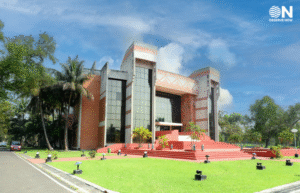First IPS Officer from Arunachal Pradesh Robin Hibu, Elevated to DGP
Robin Hibu, Indian Police Service (IPS) officer from Arunachal Pradesh, has been promoted to the prestigious rank of Director General of Police (DGP). Currently serving as the Additional Director General of Police (ADG) in Delhi, Hibu’s promotion marks a significant milestone for the 1993 AGMUT cadre officer.
In addition to his current roles as the recruitment chairman and vigilance chief of the Delhi Police’s transport safety division, Hibu’s career is decorated with numerous accolades. He has received the President of India Police Medal for Meritorious and Distinguished Services, the Ati-Utkrisht Seva Padak in 2021, and two gold medals from the government of Arunachal Pradesh.
Hailing from Hong village in the Lower Subansiri district, Hibu’s journey from humble beginnings to the highest echelons of the police force is inspiring. Educated at the Kasturba Gandhi Seva Ashram in Hong and JN College, Pasighat, he first cracked the state civil services examination before passing the UPSC exam in 1993, becoming Arunachal Pradesh’s first IPS officer.
Expressing his joy, Hibu stated, “I share this happiness with every person of Arunachal Pradesh. It has been an incredible journey from a school in Hong village to serving in the IPS and being part of the UN peacekeeping force. I remain committed to working for the people of our state.”
Chief Minister Pema Khandu and Deputy Chief Minister Chowna Mein have both congratulated Hibu on his promotion, celebrating this historic achievement for the state.


























